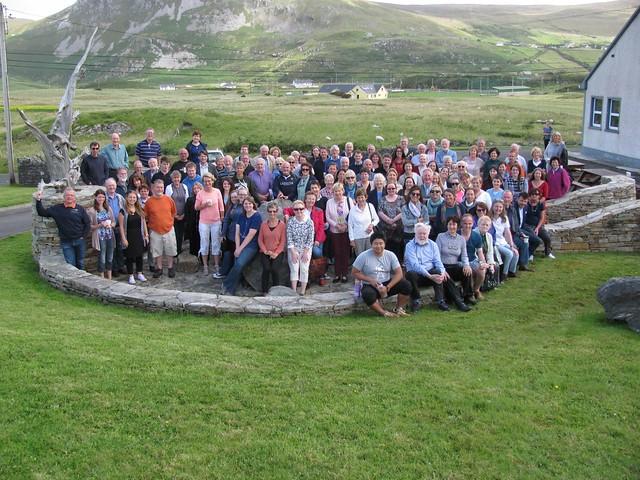Podcast: Play in new window | Download
In this Adventure in Etymology we’re unrolling the origins of the word wheel, and finding out how its linked to such words as pole, telephone, cult, collar and cycle.
A wheel [wiːl/ʍiːl/wil] is:
- A circular device capable of rotating on its axis, facilitating movement or transportation or performing labour in machines.
It comes from Middle English whele [ʍeːl] (wheel), from Old English hwēol [xwe͜oːl] (wheel), from Proto-Germanic *hwehwlą [ˈxʷe.xʷlɑ̃] (wheel), from PIE *kʷékʷlom (wheel) from *kʷel- (to turn) [source].
Words from the same roots include pole, telephone, chakra, cult, collar and cycle in English, kolo (bicycle, wheel) in Czech, kakls (neck, throat) in Latvian, and चाक (cāk – wheel) and चक्र (cakra – circle, ring, wheel, cycle) in Hindi [source].
Incidentally, words for chariot or wheel in Sumerian (𒄑𒇀), Aramaic and Hebrew (גַּלְגַּל) and Chinese (軲轆) possibly come from the same PIE roots [source].
Here’s a video I made of this information:
Video made with Doodly [afflilate link].
I also write about words, etymology and other language-related topics on the Omniglot Blog, and I explore etymological connections between Celtic languages on the Celtiadur.
You can also listen to this podcast on: Apple Podcasts, Amazon Music, Stitcher, TuneIn, Podchaser, PlayerFM or podtail.
If you would like to support this podcast, you can make a donation via PayPal or Patreon, or contribute to Omniglot in other ways.







